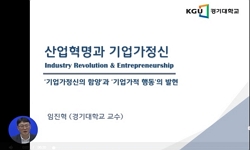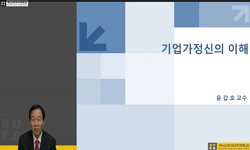The main purpose of this paper is to explain the inherent characteristics of capital in Jeju based on corporation companies whose main branches were in Jeju during colonial period. As a first step toward this topic, we investigate the changes of Jeju ...
http://chineseinput.net/에서 pinyin(병음)방식으로 중국어를 변환할 수 있습니다.
변환된 중국어를 복사하여 사용하시면 됩니다.
- 中文 을 입력하시려면 zhongwen을 입력하시고 space를누르시면됩니다.
- 北京 을 입력하시려면 beijing을 입력하시고 space를 누르시면 됩니다.
일제하 제주지역의 기업가 연구
한글로보기https://www.riss.kr/link?id=G3752788
- 저자
-
발행기관
-
-
발행연도
2006년
-
작성언어
Korean
- 주제어
-
자료형태
한국연구재단(NRF)
-
0
상세조회 -
0
다운로드
부가정보
다국어 초록 (Multilingual Abstract)
The economy of Jeju in colonial period experiences many changes and shows the substantial economic performance. The development of transportation and labor of hanyeo motivates to boost up the Jeju economy in that period, especially the latter greatly helps to take off the Jeju economy. The direct line of Japan and Jeju constructed in 1922, and the increase of Jeju's agricultural productivity in 1930 play a great role in establishing a solid foundation of Jeju economy in colonial period. These factors result in the increase of money demand and savings leading to the capital accumulation. The increase and accumulation of capital in Jeju, in turn, facilitate the advent of several corporation companies. This also positively affects the production and sales through enhanced purchasing power of residents, consumption pattern change, increase of market trades.
Those companies increased in number at that period actively produce the goods such as items easily sold and cashed, and war supplies. Among the various features on the growth strategy of those companies, the most noticeable one is the variety of goods. According to our study, it is considered that the corporation companies of Jeju in the colonial period intensify their production activities through the two major pivots, the advance of commodity economy and self-sustenance, in addition to the supply of war materials to the Japanese empire. It is also found that the characteristic of those firms' capital, due to their strategy, is very self-reliable and can hold the dominant position over that in Japanese firms in competitiveness.
This article addresses the entrepreneurial activities of Kang Sung-Ik and Hwang Soon-Ha, who was two of the most well-known modern business man and contributed toward the Jejudo transportation and brewing industry, and the modern economy formation of Jejudo by means of the local capital rather than the non-Jeju capital.
Kang Sung-Ik and Hwang Soon-Ha economic activities for over 50 years was a important research data for Jeju's modern enterprises as well as its entrepreneurs. That company became a important driving force to economic growth of Jejudo under the rule of Japanese Imperialism and influenced on another modern company of Jejudo and its expansion. And Jejudo entrepreneur accumulated his wealth by modern company, and then he contributed his money to local community and showed ethical business of social-oriented or community-based entrepreneurship by oneself.
In recent years, entrepreneur's ethic and their social contribution activities become decreased gradually in Korean. And many entrepreneur have been the object of critical censure among common people, because of real estate speculation by non-normal way within liberal market economy system. In this condition, Park Jong-Sil's economic activities and spirits and academic studies about that will suggest some meaningful points to contemporary entrepreneur.
The main purpose of this paper is to explain the inherent characteristics of capital in Jeju based on corporation companies whose main branches were in Jeju during colonial period. As a first step toward this topic, we investigate the changes of Jeju economy in the same period since the Jeju economy of that period is known to affect exogenously the establishment and growth of corporation companies of Jeju in that period.
The economy of Jeju in colonial period experiences many changes and shows the substantial economic performance. The development of transportation and labor of hanyeo motivates to boost up the Jeju economy in that period, especially the latter greatly helps to take off the Jeju economy. The direct line of Japan and Jeju constructed in 1922, and the increase of Jeju's agricultural productivity in 1930 play a great role in establishing a solid foundation of Jeju economy in colonial period. These factors result in the increase of money demand and savings leading to the capital accumulation. The increase and accumulation of capital in Jeju, in turn, facilitate the advent of several corporation companies. This also positively affects the production and sales through enhanced purchasing power of residents, consumption pattern change, increase of market trades.
Those companies increased in number at that period actively produce the goods such as items easily sold and cashed, and war supplies. Among the various features on the growth strategy of those companies, the most noticeable one is the variety of goods. According to our study, it is considered that the corporation companies of Jeju in the colonial period intensify their production activities through the two major pivots, the advance of commodity economy and self-sustenance, in addition to the supply of war materials to the Japanese empire. It is also found that the characteristic of those firms' capital, due to their strategy, is very self-reliable and can hold the dominant position over that in Japanese firms in competitiveness.
This article addresses the entrepreneurial activities of Kang Sung-Ik and Hwang Soon-Ha, who was two of the most well-known modern business man and contributed toward the Jejudo transportation and brewing industry, and the modern economy formation of Jejudo by means of the local capital rather than the non-Jeju capital.
Kang Sung-Ik and Hwang Soon-Ha economic activities for over 50 years was a important research data for Jeju's modern enterprises as well as its entrepreneurs. That company became a important driving force to economic growth of Jejudo under the rule of Japanese Imperialism and influenced on another modern company of Jejudo and its expansion. And Jejudo entrepreneur accumulated his wealth by modern company, and then he contributed his money to local community and showed ethical business of social-oriented or community-based entrepreneurship by oneself.
In recent years, entrepreneur's ethic and their social contribution activities become decreased gradually in Korean. And many entrepreneur have been the object of critical censure among common people, because of real estate speculation by non-normal way within liberal market economy system. In this condition, Park Jong-Sil's economic activities and spirits and academic studies about that will suggest some meaningful points to contemporary entrepreneur.
국문 초록 (Abstract)
첫째, 식민지기 제주경제는 많은 경제적 변동을 경험하였고 이 과정에서 일정 규모 이상의 경제적 성과를 거두었다. 이 계기가 된 것은 교통의 발달과 해녀경제라고 할 수 있다. 이러한 1930년대 제주도 사회의 자본증가 및 축적 현상은 제주도 법인회사의 설립을 촉진시켰고 아울러 제주도민의 구매력 향상과 소비행태 변화, 시장거래의 증가와 같은 요소들로 인하여 성장하게 되었다. 이 시기에 증가한 제주도 법인회사들은 당시 소비증가, 소비행태 변화에 영향을 받은 이입대체품 생산, 판매나 현금화에 용이한 상품경제화 품목, 마지막으로 일제의 전쟁수행에 부합되는 군수물자 생산 등에 주력하며 기업 활동을 활발히 펴 나갔던 것이다.
둘째, 근대제주의 기업가 남주 강성익의 활동의 폭은 넓고 다양하다. 다양하고 역동적인 강성익의 삶 중에서도 특히 이 글에서 강조하고 싶은 부분은 열악한 경제적 조건과 일제에 의해 정치적 권력이 침탈된 상황에서도 그가 보여준 역동적 기업가활동에 관한 것이다. 강성익이 보여준 경영활동과 사회공헌은 당시뿐만 아니라 현재에도 기업가로서, 교육자로서 제주의 근대화를 꿈꾸었던 제주기업가로 오래 기억에 남을 만 하다. 오늘날 우리가 강성익을 연구하고 그가 남긴 메시지를 학문적으로 되새겨보는 것은 모든 제주도민이 공감하고 수긍할 수 있는 ‘제주의 어른’을 갈망하는데 그 이유가 숨어있다.
셋째, 일제시기 제주경제는 많은 경제적 변동을 경험한 가운데 황순하에 의해 설립되었던 회사자본은 일인자본(日人資本)에 비해 자본 경쟁력이 열위에 있었다고 하지만 그 성격이 매우 독립적이고 자율적이었다고 할 수 있다. 특히 황순하는 제주도 특산물을 가공 판매하는 해조류와 소주 제조업 분야를 중심으로 활동하였고 제주의 교육발전에 공헌하였음을 알 수 있다.
넷째, 박종실은 소규모 소매상점에서 시작하여 훗날 종합무역상사의 효시이자 민족자본의 태동으로 일컬어질 만한 종합해운상사까지 경영한 기업가사적 연구가치가 많은 기업인이다. 특히 박종실은 교역을 통하여 일본인으로부터 피해를 막고 국가에 공헌하겠다는 다짐으로 많은 지역경영활동에 참여를 하였고 제주지역 발전을 위해 많은 열의를 보였다. 또한 기업경영 활동을 통한 이익을 부의 축적에 그치지 않고 도립도서관 기증, 경로당 건립, 육영사업 등 지역사회에 환원하는 모범적인 기업가의 표상이 되었다. .이처럼 박종실은 신용과 근검, 절약으로 자본을 축적해 나갔으며 애국정신과 신용제일주의를 근본적인 경영정신으로 삼고 기업윤리를 실천적 행동으로 옮긴 기업가였다.
따라서 이 연구는 일제식민지기 제주도에 본점을 둔 공장 및 회사 설립을 대상으로 기업가활동을 분석함
본 연구과제는 지금까지 역사 속에서 소외되어 왔고 차별되어져 온 경영인들의 삶을 올바로 자리매김 하고자 하는 작업이다. 제주기업인들이 살아온 삶의 역사를 통해 오늘날 제주경영인의...
본 연구과제는 지금까지 역사 속에서 소외되어 왔고 차별되어져 온 경영인들의 삶을 올바로 자리매김 하고자 하는 작업이다. 제주기업인들이 살아온 삶의 역사를 통해 오늘날 제주경영인의 현실을 제대로 이해함으로써 전통과 현대가 연결되는 제주의 기업가상을 객관적으로 확보하고 나아가 제주기업인이 지향해야 할 미래상을 전망하기 위한 것이다. 이러한 문제인식에 비추어 보았을 때 박종실, 강성익, 황순하는 누구보다도 근대적인 기업가이며 사회사업가로서 타의 모범의 될만한 역사적 인물이라고 할 수 있다. 본 연구과제에 대한 요약을 간단하게 기술하면 다음과 같다.
첫째, 식민지기 제주경제는 많은 경제적 변동을 경험하였고 이 과정에서 일정 규모 이상의 경제적 성과를 거두었다. 이 계기가 된 것은 교통의 발달과 해녀경제라고 할 수 있다. 이러한 1930년대 제주도 사회의 자본증가 및 축적 현상은 제주도 법인회사의 설립을 촉진시켰고 아울러 제주도민의 구매력 향상과 소비행태 변화, 시장거래의 증가와 같은 요소들로 인하여 성장하게 되었다. 이 시기에 증가한 제주도 법인회사들은 당시 소비증가, 소비행태 변화에 영향을 받은 이입대체품 생산, 판매나 현금화에 용이한 상품경제화 품목, 마지막으로 일제의 전쟁수행에 부합되는 군수물자 생산 등에 주력하며 기업 활동을 활발히 펴 나갔던 것이다.
둘째, 근대제주의 기업가 남주 강성익의 활동의 폭은 넓고 다양하다. 다양하고 역동적인 강성익의 삶 중에서도 특히 이 글에서 강조하고 싶은 부분은 열악한 경제적 조건과 일제에 의해 정치적 권력이 침탈된 상황에서도 그가 보여준 역동적 기업가활동에 관한 것이다. 강성익이 보여준 경영활동과 사회공헌은 당시뿐만 아니라 현재에도 기업가로서, 교육자로서 제주의 근대화를 꿈꾸었던 제주기업가로 오래 기억에 남을 만 하다. 오늘날 우리가 강성익을 연구하고 그가 남긴 메시지를 학문적으로 되새겨보는 것은 모든 제주도민이 공감하고 수긍할 수 있는 ‘제주의 어른’을 갈망하는데 그 이유가 숨어있다.
셋째, 일제시기 제주경제는 많은 경제적 변동을 경험한 가운데 황순하에 의해 설립되었던 회사자본은 일인자본(日人資本)에 비해 자본 경쟁력이 열위에 있었다고 하지만 그 성격이 매우 독립적이고 자율적이었다고 할 수 있다. 특히 황순하는 제주도 특산물을 가공 판매하는 해조류와 소주 제조업 분야를 중심으로 활동하였고 제주의 교육발전에 공헌하였음을 알 수 있다.
넷째, 박종실은 소규모 소매상점에서 시작하여 훗날 종합무역상사의 효시이자 민족자본의 태동으로 일컬어질 만한 종합해운상사까지 경영한 기업가사적 연구가치가 많은 기업인이다. 특히 박종실은 교역을 통하여 일본인으로부터 피해를 막고 국가에 공헌하겠다는 다짐으로 많은 지역경영활동에 참여를 하였고 제주지역 발전을 위해 많은 열의를 보였다. 또한 기업경영 활동을 통한 이익을 부의 축적에 그치지 않고 도립도서관 기증, 경로당 건립, 육영사업 등 지역사회에 환원하는 모범적인 기업가의 표상이 되었다. .이처럼 박종실은 신용과 근검, 절약으로 자본을 축적해 나갔으며 애국정신과 신용제일주의를 근본적인 경영정신으로 삼고 기업윤리를 실천적 행동으로 옮긴 기업가였다.
따라서 이 연구는 일제식민지기 제주도에 본점을 둔 공장 및 회사 설립을 대상으로 기업가활동을 분석함











